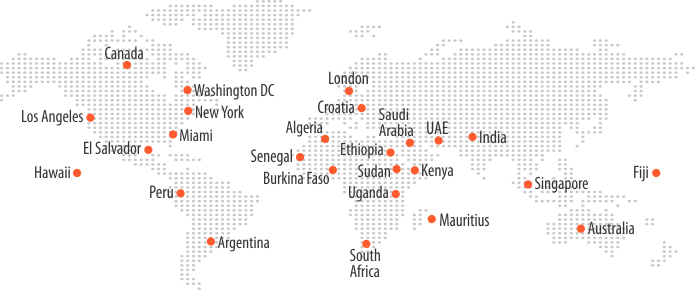Future-Proofing VoIP: Key Strategies for Wholesale VoIP Providers

Market research reveals that the global VoIP industry will touch $102.5 billion by 2026 and wholesale providers are looking to empower their strategies by adopting next-gen tech and advanced security initiatives. In addition, they are leveraging emerging AI/ML solutions to fulfill the rapidly expanding connectivity requirements throughout the world. Wholesale VoIP carriers are also prioritizing cloud-native architectures that work with 5G technology to optimize their networks for ultra-low latency.
It also becomes essential to maintain strict regulatory compliance especially for AI-automatized implementation as per GDPR, HIPAA, and other standards and guidelines. This blog presents few essential strategies which wholesale VoIP carriers can explore to advance their VoIP services for the present and future connectivity needs. It also contains useful pointers to help them improve QoS features and create fresh revenue streams.
Adopting Future-Ready VoIP Network Architectures
The rapid pace of digital transformation has compelled wholesale VoIP providers to deploy next-generation network designs for continuing commercial success. New technology innovations have improved the reliability and increased the scalability of the network structures.
Shifting to Cloud-Native VoIP Solutions
Reliable future communication networks require the adoption of cloud-native VoIP solutions. Wholesale VoIP services can gain dynamic scalability through the implementation of containerization and microservices which allows them to operate resiliently. The implementation of Network Functions Virtualization (NFV) will enable the elimination of legacy hardware while decreasing operational expenses. NFV would also help provide faster deployment of new services to customers.
5G and Edge Computing for VoIP
5G technology has converted VoIP communications through the delivery of robust ultra-low-latency connections. The deployment of edge computing will allow wholesale VoIP providers to deliver superior call quality along with reduced latency. It can be easier to maintain high-performance voice communication by integrating 5G and edge computing.
Importance of Hybrid Networks and Seamless Integration
Organizations can achieve smooth scalability while enjoying performance enhancements by implementing hybrid networks. These networks integrate cloud systems and on-site infrastructure allowing businesses to make seamless transition between legacy systems and modern platforms.
Strengthening Security and Regulatory Compliance
As cyber threats continue to evolve, wholesale VoIP providers must prioritize robust security measures and regulatory compliance to safeguard their operations and maintain customer trust. Ensuring secure and compliant VoIP services requires constant vigilance, proactive strategies, and the adoption of advanced technologies to stay ahead of emerging risks.
Deploying AI-Powered Threat Detection
AI-powered systems must become part of wholesale VoIP carriers’ infrastructure to identify and combat VoIP fraud together with DDoS attacks and SIP vulnerabilities. Blockchain can strengthen security operations through features that deliver encrypted call routing along with detailed billing records to deter unauthorized changes.
Better Compliance
By following GDPR and HIPAA and E911 regulations wholesale carriers can ensure their customers’ trust and maintain regulatory compliance. SRTP encryption, alongside TLS communication protocols, can protect sensitive network traffic from cyber-attacks while sustaining secure data exchange.
Zero-Trust Security Models
The implementation of zero-trust security will require ongoing verification of authorized identities which leads to substantially lower security vulnerabilities. Defined security scans accompanied by ongoing system updates can assist wholesale VoIP infrastructures in their battle against developing threats.
Enhancing VoIP Networks with AI and Automation
The integration of AI and automation technologies is revolutionizing VoIP networks, unlocking new levels of efficiency, reliability, and user satisfaction. By leveraging these advanced tools, VoIP networks can optimize capacity, predict and prevent disruptions, and deliver seamless communication experiences even during peak usage. AI and automation are also transforming customer support and service continuity, ensuring that businesses and end-users alike benefit from faster, smarter, and more reliable VoIP solutions.
AI for Network Optimization
The real-time functionality of machine learning algorithms will enable them to forecast network traffic congestion while simultaneously reevaluating call pathways for optimized performance. Much like automated traffic management controls, the quality of AI-assisted VoIP services an give users superior satisfaction even during periods of heavy utilization.
Enhancing Customer Support
AI technology will enable customers to access instant and next-gen support through chatbots and virtual assistants which solve regular requests alongside resolving technical problems. The examination of customer dialogs can allow businesses to resolve problems proactively and boost the performance of the entire service delivery.
Predictive Analytics for Service Continuity
Real-time monitoring across networks will provide preventive actions which guard against service outages and service disruption. Through predictive analytics wholesale VoIP providers can discover upcoming service quality threats before they occur and maintain continued and reliable communication for business users and end-users.
Expanding VoIP Services to Drive Revenue Growth
In an increasingly competitive VoIP ecosystem, diversification has emerged as a critical strategy for sustaining growth and profitability. As traditional revenue streams face pressure from declining profit margins, wholesale VoIP providers must innovate and expand their service offerings to unlock new opportunities. By embracing emerging technologies and tailoring solutions to meet evolving market demands, providers can not only counteract financial challenges but also position themselves as leaders in the next generation of communication services.
Capitalizing on UCaaS and CPaaS
Unified Communications as a Service (UCaaS) and Communication Platform as a Service (CPaaS) are becoming increasingly popular. A business solution that combines voice and video communication, messaging, and collaboration features can deliver unified communication benefits to businesses.
Unlocking New Opportunities with IoT and M2M Communication
VoIP stands as a key enabling technology for both IoT devices and M2M communication functions. The delivery of customized VoIP solutions for health systems and logistics sectors, in tandem with smart city networks, have already generated lucrative business prospects for wholesale telephone providers.
Global Localization as the Pivot Point
A company’s expansion into new retail markets will become more successful when it provides localized VoIP services in each market. The market acceptance of business solutions would depend significantly on recognition and adoption of local cultural practices.
Elevating Customer Experience with Superior QoS
High-quality service (QoS) has become a defining factor that separates successful VoIP providers from those that struggle to retain customers. As user expectations continue to rise, providers must prioritize seamless call quality, personalized solutions, and proactive engagement to build trust and loyalty. By leveraging advanced technologies and data-driven strategies, VoIP providers can not only meet but exceed customer demands, ensuring consistent performance and tailored experiences.
Enhancing Call Quality with Advanced QoS Strategies
Companies will achieve flawless call quality through QoS implementation which controls jitter and latency and minimizes packet loss occurrences. Real-time monitoring tools can function as performance consistency enablers.
Delivering Personalized VoIP Solutions
All wholesale VoIP providers will benefit from advanced, AI-assisted data analytics as it enables them to customize VoIP plans to match specific customer needs. Customers can gain the ability to flawlessly manage their services with greater efficiency by using self-service portals.
Proactively Engaging Customers
Companies that apply predictive analytics to solve customer challenges will create better satisfaction levels. Business communication efficiency will receive a thrust from value-added VoIP services that include call recording and transcription which are further strengthened by analytics.
Future-Proofing VoIP with Emerging Technologies
The future of VoIP is poised for a significant transformation, driven by the convergence of several key emerging technologies. Sustainable network designs, coupled with the revolutionary potential of generative AI and the promise of 6G, will reshape how we think about and utilize VoIP. These advancements will not only enhance the user experience but also address critical concerns like environmental impact and network efficiency.
Integrating Generative AI
Advances in generative AI systems will help companies create customized dialogues that improve interactions with their clients. Combining advanced analytics can produce a deep understanding of user activities and network operations, which will lead to service delivery enhancement.
Driving Sustainability
Environmental-focused VoIP solutions will cut down emissions which appeals to businesses concerned about sustainability. Network design efficiency will lead to both minimal energy usage and support worldwide sustainability targets.
Conclusion
The global VoIP industry is being driven by the rapid adoption of next-generation technologies and innovative strategies by wholesale providers. From cloud-native architectures and 5G integration to AI-powered automation and advanced security measures, the VoIP landscape is evolving to meet the growing demands for seamless, scalable, and secure communication solutions. As providers prioritize regulatory compliance, sustainability, and superior Quality of Service (QoS), they are not only future-proofing their networks but also unlocking new revenue streams and enhancing customer experiences.
The integration of emerging technologies like generative AI, IoT, and edge computing further underscores the industry’s commitment to innovation and efficiency. By embracing these advancements, wholesale VoIP carriers can stay ahead of the curve, delivering value-added services that cater to diverse markets and industries. As the world moves toward a more connected and digital future, VoIP providers have a unique opportunity to lead the charge, transforming the way businesses and individuals communicate while driving sustainable growth and operational excellence.






